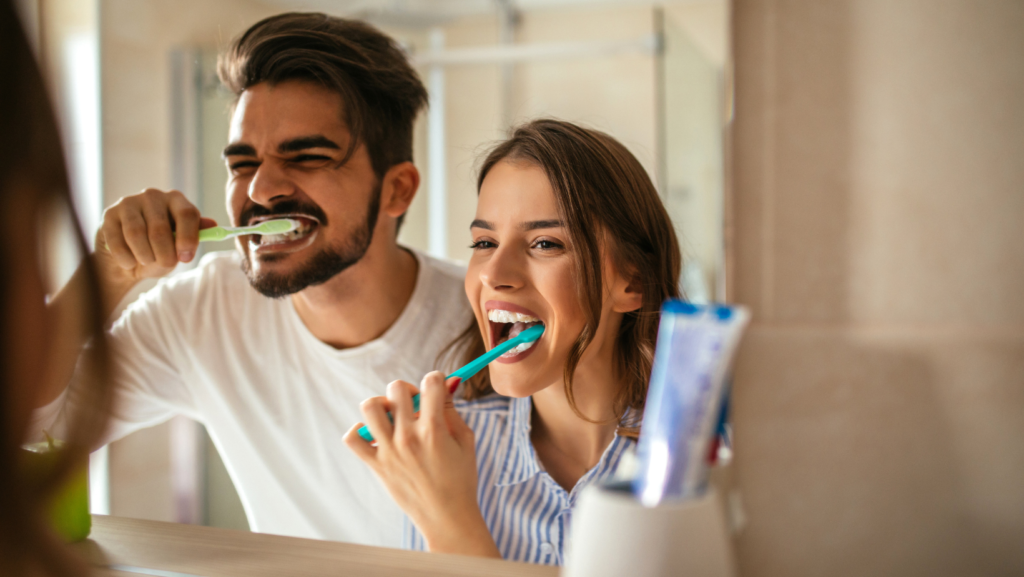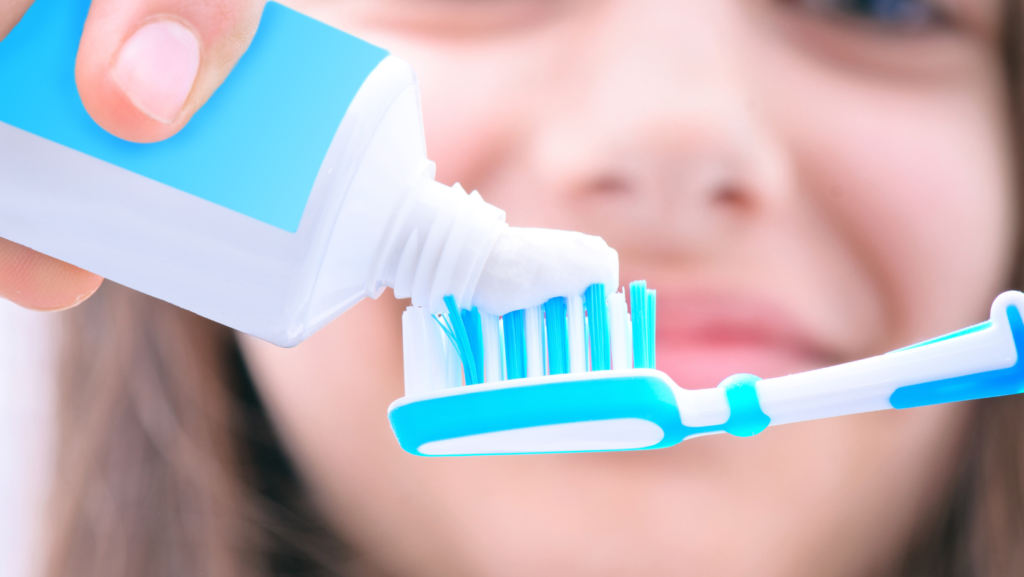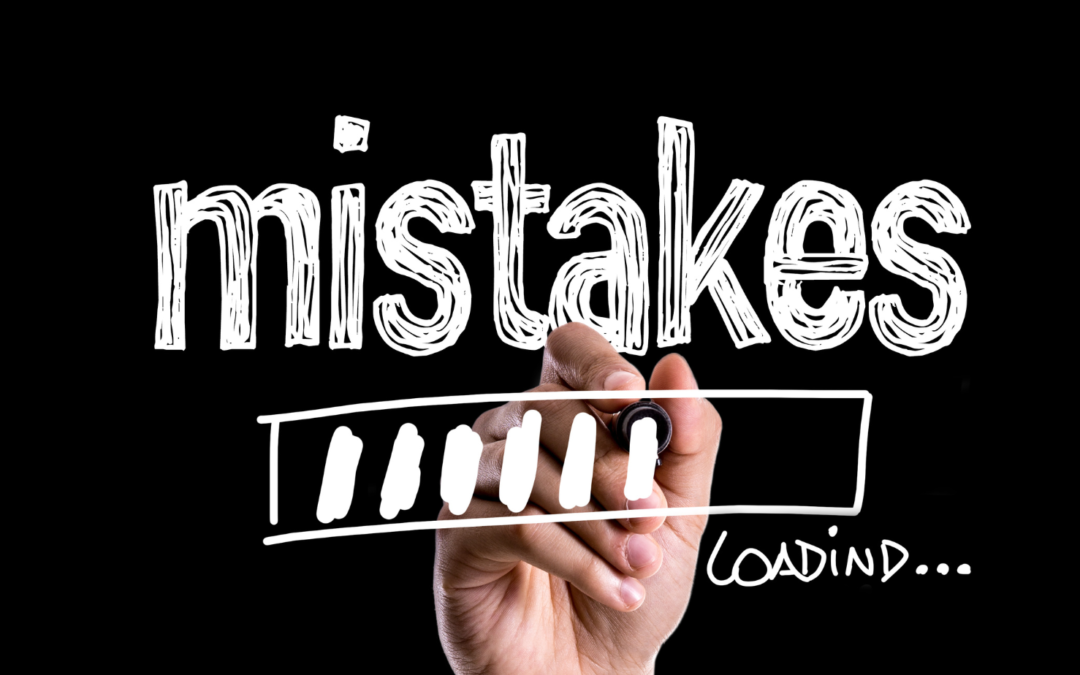Most people don’t realize that they’re making mistakes when brushing their teeth. In fact, many of these mistakes are so common that most people don’t even know they’re doing them wrong. But if you’re not taking the time to brush your teeth properly, you could be doing more harm than good. Here are some of the most common toothbrush mistakes people make.
Not Brushing for Long Enough
One of the most common toothbrush mistakes is not brushing for long enough. The American Dental Association recommends brushing for two minutes, twice a day. However, many people only brush for an average of 45 seconds. As a result, they are not getting the full benefits of brushing. While it may seem like a minor detail, brushing for the full two minutes is essential for preventing cavities and keeping your teeth healthy.
Not brushing for long enough can cause plaque to build up on your teeth. Plaque is a sticky film of bacteria that forms on your teeth and gums. If it isn’t removed, it can harden into tartar, which is more difficult to remove. Plaque and tartar can lead to tooth decay and gum disease. Additionally, not brushing for long enough can leave food particles on your teeth, which can lead to bad breath.
Brushing for two minutes may seem like a lot of time, but there are a few easy ways to make sure you are brushing for the full amount of time. You can set a timer on your phone or use an electric toothbrush with a built-in timer. You can also divide your mouth into sections and spend 30 seconds brushing each section.
Not Brushing Properly
In addition to not brushing for long enough, many people also don’t brush properly. Brushing too hard can damage your gums and tooth enamel. You should use gentle circular motions when brushing your teeth.
Additionally, you should be sure to brush all surfaces of your teeth, including the fronts, backs, and chewing surfaces. Many people only focus on the front surfaces of their teeth, but it’s important to clean all sides to prevent cavities and gum disease.
Not brushing properly can lead to a number of problems, including gum recession, tooth sensitivity, and enamel wear. Gum recession is when the gum tissue pulls away from the tooth, exposing the roots. This can make your teeth look longer than they actually are. Tooth sensitivity is when the tooth enamel is worn down, exposing the underlying dentin. This can make your teeth more sensitive to hot and cold temperatures. Enamel wear is when the tooth enamel is worn down, making the teeth more susceptible to cavities and other problems.
Not Changing Your Toothbrush Often Enough

Another common mistake people make is not changing their toothbrushes often enough. You should change your toothbrush every three to four months, or sooner if the bristles start to fray. Additionally, you should replace your toothbrush after you’ve been sick to avoid re-infecting yourself.
Not changing your toothbrush often enough can lead to a buildup of bacteria on the bristles. This can cause you to re-infect yourself with bacteria, viruses, and other germs. Additionally, old toothbrushes can be less effective at cleaning your teeth. As a result, you may not be getting the full benefits of brushing if you don’t change your toothbrush often enough.
Not Flossing
Another common mistake people make is not flossing. Flossing is just as important as brushing for preventing cavities and gum disease. You should floss at least once a day to remove plaque and food particles from between your teeth.
Not flossing can lead to a number of problems, including cavities, gum disease, and bad breath. Cavities are more likely to form in the spaces between your teeth where brushing can’t reach. Gum disease is an infection of the gums that can cause tooth loss. Bad breath is caused by food particles and plaque that become trapped between your teeth.
Using the Wrong Toothbrush
Using the wrong toothbrush can also impact the effectiveness of your brushing. There are a variety of different types of toothbrushes, including manual and electric toothbrushes. You should choose a toothbrush that is comfortable for you to use and that will reach all surfaces of your teeth.
Additionally, you should choose a toothbrush with soft bristles. Harder bristles can damage your gums and tooth enamel. If you have sensitive teeth, you may want to consider using an electric toothbrush. Electric toothbrushes can be more gentle on your teeth and gums while still providing a thorough cleaning.
Not Using Toothpaste

Not using toothpaste is another common mistake people make when brushing their teeth. Toothpaste helps to remove plaque and bacteria from your teeth. It also provides fluoride, which can help to prevent cavities.
You should use a pea-sized amount of toothpaste when brushing your teeth. You can find toothpaste with different flavors, including mint, cinnamon, and citrus. You may want to try a few different flavors to find one that you like.
Swallowing Toothpaste
Swallowing toothpaste is also a common mistake people make. Toothpaste can be toxic if swallowed in large quantities. However, swallowing a small amount of toothpaste is not harmful.
If you do swallow toothpaste, you should drink plenty of water to help flush it out of your system. You should also call your dentist if you have any concerns.
Not Rinsing Your Mouth
Not rinsing your mouth after brushing is another common mistake people make. Rinsing helps to remove plaque and bacteria from your teeth and gums. It also helps to prevent cavities by keeping fluoride on your teeth.
You should rinse your mouth with water after brushing and flossing. You can also use mouthwash to help remove plaque and bacteria. However, you should not swallow mouthwash because it can be toxic.
Not Visiting the Dentist Regularly
Not visiting the dentist regularly is another mistake people often make. You should visit the dentist at least once a year for a routine cleaning and examination. This can help to prevent cavities, gum disease, and other problems.
If you have a history of dental problems, you may need to visit the dentist more often. Your dentist can recommend how often you should come in for appointments based on your individual needs.
Conclusion
Brushing your teeth is important for maintaining good oral health. However, there are a number of mistakes that people often make when brushing their teeth. These mistakes can lead to cavities, gum disease, and bad breath. To avoid these problems, you should brush twice a day, floss regularly, use toothpaste, rinse your mouth after brushing, and visit the dentist regularly.
If you have any concerns about your oral health, you should talk to your dentist. They can help you create a plan to maintain good oral health and prevent dental problems.
